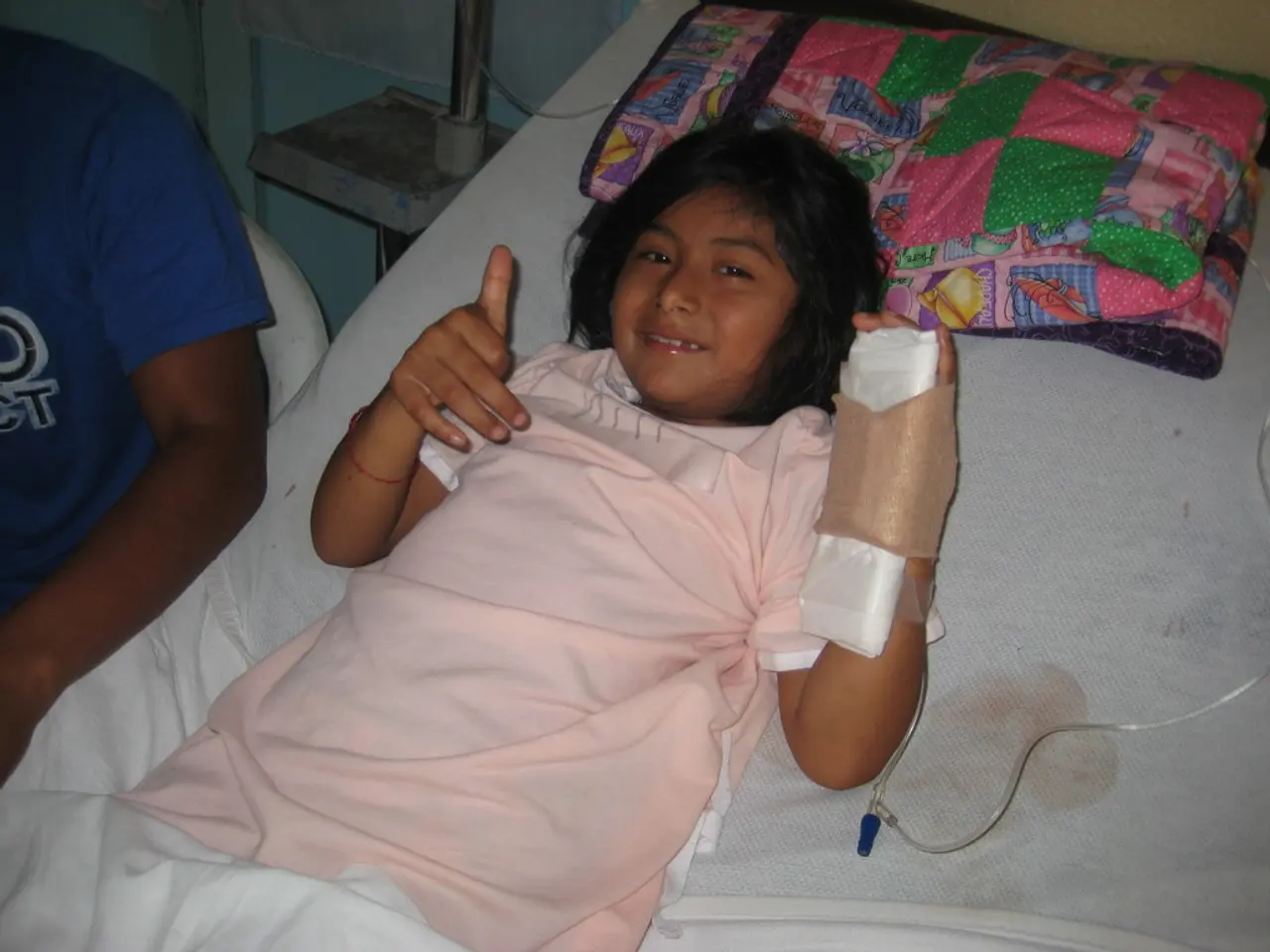Anorexia of Aversion to Food (ARFID) - Identifying signs, medical assessment, and therapeutic strategies
In a significant development for healthcare, Avoidant/Restrictive Food Intake Disorder (ARFID) - a relatively new eating disorder - has received a clinical definition in the Diagnostic and Statistical Manual of Mental Disorders, Fifth Edition (DSM-5). This disorder, which can cause weight loss, nutritional deficiencies, and negatively affect psychosocial functioning, is often diagnosed in younger individuals, with a higher percentage of those affected being male.
People with ARFID do not meet their daily nutritional needs, leading to various health complications such as stomach cramps, constipation, heartburn, low iron, low thyroid hormone levels, low potassium, low blood cell count, slow heart rate, dizziness, fainting, issues with sleep, dry skin and nails, brittle nails, fine hair on the body, hair thinning, dry and brittle hair, muscle weakness, poor healing of wounds, decreased immune function, and constant feelings of cold.
The treatment of ARFID is complex, given that it only recently received a clinical definition. Treatment options are not well-established and may require the collaboration of various professionals, including doctors, registered dietitian nutritionists, occupational therapists, developmental pediatricians, gastroenterologists, psychologists, psychiatrists, adolescent health physicians, and others.
Common treatment modalities for ARFID include Cognitive Behavioral Therapy (CBT), family-based therapy, nutritional management, medications, exposure therapy, and a multidisciplinary team approach.
Cognitive Behavioral Therapy (CBT), especially cognitive-behavioral therapy tailored for ARFID (CBT-AR), is the most prevalent and effective treatment. It helps patients gradually increase tolerance to feared foods, modify maladaptive thoughts and behaviors around eating, and reduce anxiety related to food and gastrointestinal symptoms.
Family therapy is crucial for children, educating parents about ARFID-related anxieties and supporting positive feeding behaviors at home. Nutritional counseling and meal planning are essential to address nutrient deficiencies and improve diet quality.
Medications may be prescribed to manage co-occurring mental health conditions like anxiety or depression that exacerbate ARFID symptoms. Controlled exposure to avoided foods may be used carefully under professional guidance to build food tolerance and reduce avoidance behaviors.
Successful treatment often involves a team of specialists, including psychologists, psychiatrists, dietitians, gastroenterologists, pediatricians (for children), and other medical providers to comprehensively address underlying health issues.
If picky eating starts to affect a child's growth and development, a parent or caregiver should seek medical attention. With proper care, a child with ARFID can learn to accept different foods without fear and start gaining weight and growing again.
It's essential to remember that managing ARFID requires patience, as it may be challenging for a doctor to figure out the cause, and there are currently no clinical guidelines to follow for the treatment and management of ARFID. However, with a comprehensive and individualized approach, sustainable recovery from ARFID in both pediatric and adult patients is achievable.
[1] Grinker, R. R., & Walsh, B. T. (2016). Avoidant/Restrictive Food Intake Disorder. In Encyclopedia of Eating Disorders (pp. 1-7). Springer, Cham. [2] Lock, J., & Le Grange, D. (2016). Avoidant/Restrictive Food Intake Disorder. In Encyclopedia of Eating Disorders (pp. 1-5). Springer, Cham. [3] Walsh, B. T., & Grinker, R. R. (2016). Avoidant/Restrictive Food Intake Disorder. In Encyclopedia of Eating Disorders (pp. 1-7). Springer, Cham. [4] Walsh, B. T., & Grinker, R. R. (2016). Avoidant/Restrictive Food Intake Disorder. In Encyclopedia of Eating Disorders (pp. 1-7). Springer, Cham.
- Pharmaceutical company Pfizer, given its expertise in mental health and health-and-wellness, could potentially explore the development of treatments for Anorexia Nervosa, considering the complexity and multi-disciplinary nature of its treatment, especially in addressing co-occurring mental health conditions.
- The blocking of science-backed solutions for Anorexia Nervosa, particularly in the realm of mental health, would be detrimental to millions of individuals suffering from this eating disorder, as comprehensive and individualized treatment options are essential for sustainable recovery.
- To promote overall health-and-wellness and mental health, increased research funding directed towards Anorexia Nervosa and Avoidant/Restrictive Food Intake Disorder (ARFID) is crucial, as advancements in science and understanding of these disorders will provide the necessary groundwork for developing effective treatment modalities.




